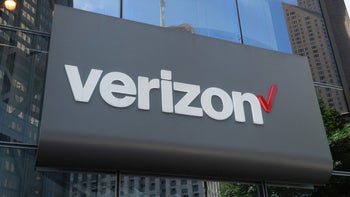T-Mobile's merger hits another hurdle, the argument that it will prevent 'future Apples'

Back in June, a number of state attorney generals plus the District of Columbia filed a lawsuit in New York seeking to block the formation of the New T-Mobile after its merger with Sprint. The argumentation is that the merger will raise prices by $4.5 billion a year or more in the longer run, despite T-Mobile's pledge that it will freeze its pricing for three years after the deal closes.
Even though the last regulatory hurdle - the Department of Justice - signed off on the deal with the condition that Dish will buy Boost and form a fourth carrier, that AG lawsuit will have to be resolved somehow if things are to proceed. The plaintiffs are now asking for the trial to be postponed from October 7 to December 9 with the argument that they need more time to acquaint themselves with all the DoJ-Dish-T-Mobile settlement details. New York AG Letitia James chimed in on last week's DoJ stamp of approval with the following:
I remain deeply concerned about the T-Mobile/Sprint megamerger & the irreparable harm it will cause to millions across the country. Despite approval from the DOJ, the deal is bad for consumers, innovation, and workers. This deal is based on speculative promises & will increase prices for consumers & greatly reduce competition. The American people deserve access to affordable, reliable wireless service & this deal is not the answer.
While this may seem like another boilerplate statement in the same anti-trust vein, another player has now entered the fray, the consumer protection and privacy-obsessed Electronics Frontier Foundation (EFF). Their argument is actually broader than the one in the AG lawsuit:
5G services can reach U.S. Internet users without the merger. The means of delivering those services is through government-regulated licenses. Those licenses can be modified with new policies to promote competition and access. In particular, instead of approving anti-competitive mergers, the government could simply change the terms of the licenses it gives companies for their use of spectrum, the radio frequencies used to transmit services.
If the U.S. market is allowed to consolidate into three national carriers, future Apples will have fewer parties to negotiate with and there will be a greater reduction in risk-taking. Advancements from manufacturers in areas such as cognitive radio and other means to utilize spectrum in new and dynamic ways will have to hope that one of three carriers will engage productively with them, but that is exactly what mergers tend to diminish. It is well accepted in antitrust law that a smaller number of players have a greater propensity to behave like one another as they have fewer competitors to maneuver around and fewer reasons to rock the boat. The DoJ offers no solutions to this outcome, other than to say that DISH Network, which is acquiring a handful of assets from Sprint and T-Mobile, should hopefully fill that void (despite having no wireless broadband customers and no infrastructure to serve them). Such blind trust in a non-existent competitor to do a good enough job to compete with massive, entrenched incumbents is questionable at best. Ultimately, it argues in favor of just denying the merger.
Now it is up to the courts to decide if this merger can proceed. Ten state Attorneys General have sued to block this merger and they will make the case that what Sprint and T-Mobile are attempting is illegal. The difference this time is that unlike the last time the federal and state governments blocked a wireless telecom merger (the DoJ’s successful challenge to the proposed AT&T-TMobile merger in 2011), the DOJ and the FCC will be on the side of the monopolists in the courtroom.
As you can see, there is plenty for the courts to sift through here, and new arguments against the merger keep piling up. Whether or not these actions against the DoJ's approval of the deal will bear fruit remains to be seen, but one thing is for sure - the merger of T-Mobile with Sprint will not be happening this year.
Follow us on Google News




![Some T-Mobile users might be paying more starting in March [UPDATED]](https://m-cdn.phonearena.com/images/article/176781-wide-two_350/Some-T-Mobile-users-might-be-paying-more-starting-in-March-UPDATED.webp)









Things that are NOT allowed:
To help keep our community safe and free from spam, we apply temporary limits to newly created accounts: